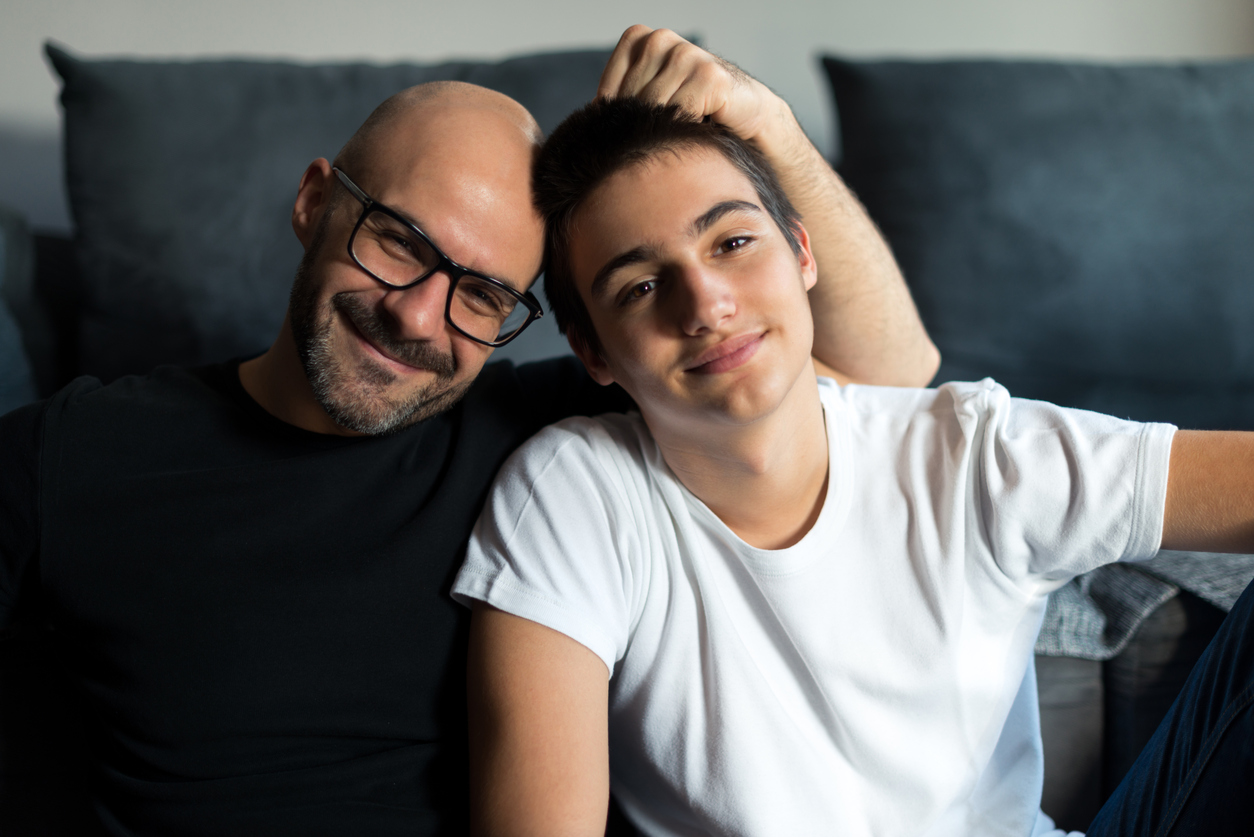
How to Help your Teen Deal with Their First Crush
Posted March 5, 2015, 3:00 pm by
Ah, there is simply nothing like falling in love for the first time, is there? However, as adults, we often find it hard to remember how encompassing and deep the emotions involved really are. As a parent, you need to be patient, and understanding, giving guidance during a time that can be very difficult and awkward for them.
Having a Crush is Normal
It can feel bewildering, scary and exhilarating for a young teen experiencing their first crush, and they are often unprepared and ill-equipped to deal with the accompanying emotions. They may wonder why they feel shy, embarrassed, or get butterflies around someone, and these odd (and often sudden) feelings can be very unsettling, especially if they involve someone they know, like a friend or teacher.
Therefore, it is always a good idea to be preemptive, and broach the subject when you have an inkling a crush is beginning (or even before), so that they have an idea of what to expect, and that the weird sensations they are experiencing are totally normal.
If you feel comfortable, and your teen is receptive, you may want to add snippets about your own crushes; not only does this make them feel less alone, but knowing that you have experienced something similar may make your teen more inclined to open up to you, and explain how they feel.
However, try not to be blasé or talk about your personal experiences negatively: you know the reality is that crushes, or even relationships at this age, rarely work out, but your teen doesn’t necessarily need to hear that.
Don’t Invalidate Their Feelings
This is really important, because to your teen, the emotions and feelings they are experiencing are very real. Let your teen talk to you about it; show interest and listen carefully, and don’t ever belittle the sentiments expressed by laughing or making them feel silly about how they feel.
You should also resist the urge to tease them. Although we might find it cute, or are even thrilled about this new stage in our teen’s life, it is something very personal and shouldn’t be made light of; neither should it be shared with the rest of the family without their permission.
The very beginnings of a first crush are not the time to become heavy-handed, either. If you tell them that they are too young to feel this way, or that dating is out of the question, you will just alienate them. A first crush is happy, exciting time, and should be enjoyed for what it is. Should the situation arise when the crush is reciprocated, then that’s a whole different ball-game; early on, just be there to listen, and share in their tumultuous teen crush experiences.
Warn of Inappropriate Behavior
It is important to speak to your teen about how to behave appropriately. Girls, in particular, can be quite extreme in their crush, and although deep emotions are normal, you should make it clear that it is not acceptable to make another person feel uncomfortable. Mercilessly teasing someone else to get their attention, ringing them repeatedly, or hanging around becoming a nuisance, will only embarrass or irritate the object of their affection, and should not be encouraged.
When it All Goes Wrong
Although you want to preserve your teen’s romantic illusions, you really need to explain the difference between a crush and a relationship. As mentioned, girls can become obsessed with the target of their affections, and this can often lead to them getting hurt very easily.
Most infatuations generally lead nowhere: teens either lose interest or get their heart broken. If it is unfortunately the latter, your teen is going to be devastated; again, don’t judge, or make light of their feelings, just listen. They need to know that the strong emotions they are experiencing are normal, and that it is okay to feel sad. What they won’t want to hear is that they’ll get over it; we know that’s true, but it certainly won’t help when they are heartbroken.
Some teens, especially boys, might not be prepared to tell you how upset they feel. So, it is crucial to follow their cue: play it by ear, and if they don’t initially wish to speak to you about it, don’t force the issue; instead, remind them you are always there if they want to talk.
</p
Blog Categories
- Career Advice
- College Admissions
- Colleges & Universities
- Financial Aid and Scholarships
- For Counselors
- For Parents
- For Students
- Gap Years
- Mental Health and Wellness
- Online Learning
- Performing and Visual Arts
- STEM Majors and More
- Summer Programs
- Teen Volunteering
- Trade & Vocational Schools
- Tutoring & Test Prep

Organization with listings on TeenLife? Login here
Register for Free
We’re here to help you find your best-fit teen-centered academic and enrichment opportunities.
Forgot Password
"*" indicates required fields








